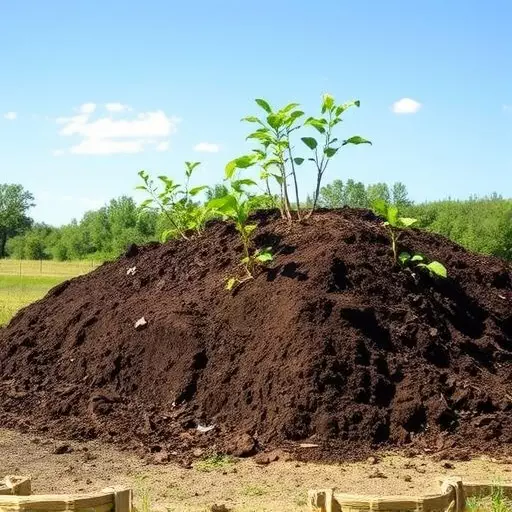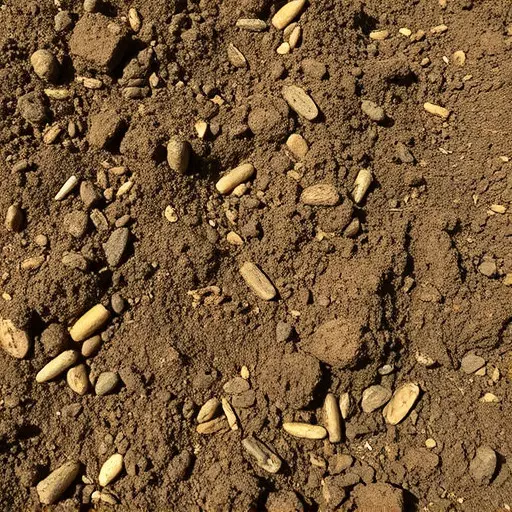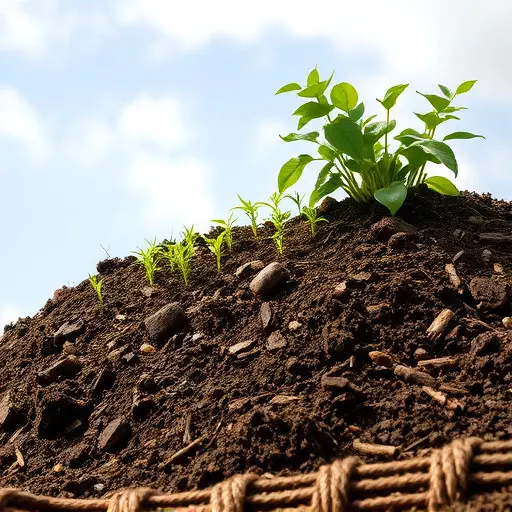Soil compaction, caused by weight, machinery, and organic waste accumulation, harms urban and agricultural environments. Topsoil recycling services in Toledo offer a sustainable solution by transforming organic waste into nutrient-rich compost, restoring compacted soils, and promoting healthier plants. This eco-friendly approach enhances soil structure, water infiltration, and plant growth, reducing landfill waste and contributing to a greener, more sustainable Toledo. By integrating organic waste recycling into urban and agricultural practices, communities can achieve robust ecosystem health and enhanced soil compaction mitigation.
Soil compaction, a silent menace, poses significant challenges to both ecosystems and agriculture. This compacted soil, often caused by construction activities or heavy machinery, hinders water penetration and root growth. In Toledo, topsoil recycling services emerge as a sustainable solution. By recycling organic waste, these services enhance soil restoration, promoting healthier ecosystems and increased agricultural productivity. This article explores various techniques for effective soil compaction mitigation, highlighting the benefits of implementing long-term strategies to preserve our precious topsoil.
- Understanding Soil Compaction: Causes and Effects
- The Role of Topsoil Recycling Services in Toledo
- Organic Waste Recycling: A Sustainable Solution
- Techniques for Effective Soil Restoration
- Benefits of Healthy Soils for Ecosystems and Agriculture
- Implementing Long-term Strategies for Soil Compaction Mitigation
Understanding Soil Compaction: Causes and Effects
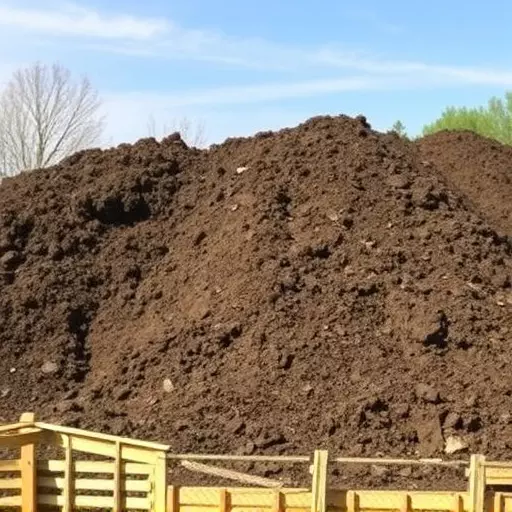
Soil compaction is a prevalent issue in urban and agricultural settings, often resulting from construction activities, heavy machinery, or intense foot traffic. It occurs when the soil particles are densely packed, reducing essential air spaces and hindering water infiltration and root growth. Understanding the causes is key to effective mitigation; primary factors include excessive weight on the soil surface, improper equipment use, and organic waste accumulation.
When left unaddressed, compacted soil can have severe consequences for plant health and ecosystem balance. Plants struggle to establish roots, leading to stunted growth and reduced yield in agricultural settings. Urban areas may experience increased stormwater runoff due to impaired infiltration, potentially causing erosion and flooding. Fortunately, topsoil recycling services in Toledo offer a sustainable solution. By utilizing organic waste recycling techniques, these services can help restore compacted soils, promoting healthier plant life and improving overall soil quality and restoration.
The Role of Topsoil Recycling Services in Toledo
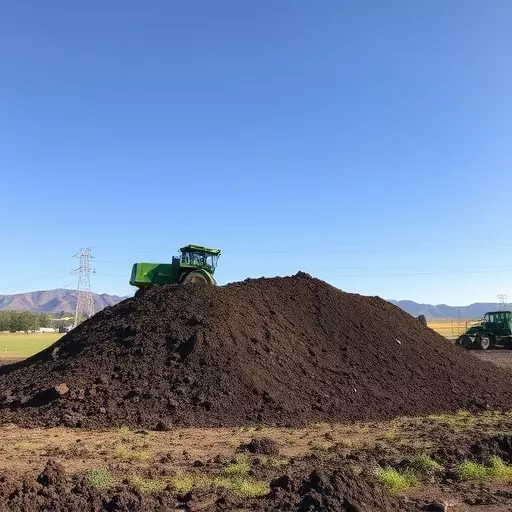
In Toledo, the integration of topsoil recycling services plays a pivotal role in soil compaction mitigation and overall soil restoration efforts. These specialized services focus on transforming organic waste into valuable topsoil, fostering a sustainable cycle that benefits both the environment and local communities. By utilizing advanced recycling techniques, these services extract nutrient-rich materials from various sources, including municipal solid waste and construction site byproducts, which are then meticulously processed to meet high-quality topsoil standards.
This process not only reduces the volume of organic waste ending up in landfills but also provides a rich resource for soil enhancement. The recycled topsoil is particularly beneficial for urban landscapes and newly developed areas where compacted soils pose significant challenges to plant growth. By incorporating this material into garden beds, parks, and construction sites, topsoil recycling services promote healthier soil structures, improve water infiltration, and support the thriving of diverse plant life, ultimately contributing to a more vibrant and sustainable urban environment in Toledo.
Organic Waste Recycling: A Sustainable Solution
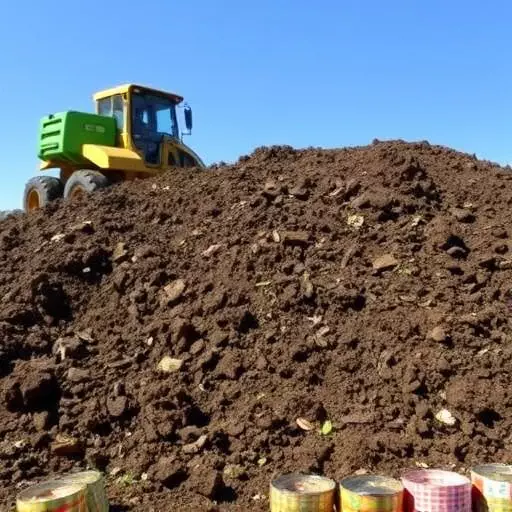
In the pursuit of soil compaction mitigation, organic waste recycling stands out as a sustainable solution that’s gaining traction in cities like Toledo. This eco-friendly approach leverages the power of topsoil recycling services to transform organic waste—which often ends up in landfills—into nutrient-rich compost that can revitalize and restore compacted soils. By integrating this practice, Toledo can significantly enhance its soil restoration efforts while reducing the environmental impact associated with waste management.
Organic waste recycling not only contributes to a circular economy but also offers numerous benefits for local ecosystems. The resulting compost improves soil structure, increases water retention, and promotes the growth of healthy plants and vegetation. As such, it’s a game-changer in the context of topsoil health and can be instrumental in efforts to create a greener, more sustainable Toledo.
Techniques for Effective Soil Restoration

Soil compaction is a significant issue that can hinder plant growth and ecosystem health. Fortunately, there are effective techniques for soil restoration that can revive compacted soils and promote vibrant landscapes. One innovative approach involves topsoil recycling services, which Toledo residents and businesses can leverage to enhance their local environment. By utilizing organic waste recycling methods, it’s possible to create nutrient-rich soil amendments that not only mitigate compaction but also support sustainable land management practices.
Topsoil recycling centers in Toledo transform organic materials like yard waste, food scraps, and agricultural byproducts into valuable composts and soil conditioning agents. These recycled products can be incorporated into compacted soils, improving their structure and aeration. Additionally, organic waste recycling reduces the amount of waste sent to landfills, contributing to a cleaner, more sustainable community. This holistic approach to soil restoration not only benefits local landscapes but also aligns with broader environmental conservation efforts.
Benefits of Healthy Soils for Ecosystems and Agriculture

Healthy soils are the foundation for thriving ecosystems and sustainable agriculture. They play a crucial role in supporting biodiversity, sequestering carbon, and promoting water retention. In urban areas, topsoil recycling services like those offered in Toledo can help mitigate soil compaction while enhancing green spaces. By utilizing organic waste recycling, cities can transform construction site remnants and household garbage into valuable topsoil, fostering a more sustainable local ecosystem.
In agriculture, soil restoration through organic practices improves crop yields, reduces the need for chemical inputs, and enhances soil’s ability to retain water during droughts. This natural approach not only benefits farmers but also contributes to preserving the region’s agricultural heritage for future generations. Organic waste recycling is a key component in achieving these goals, as it provides a circular solution that reduces landfill waste and creates a continuous cycle of nutrient-rich topsoil.
Implementing Long-term Strategies for Soil Compaction Mitigation

In the long term, mitigating soil compaction requires a comprehensive approach that goes beyond temporary fixes. One effective strategy is to leverage topsoil recycling services in Toledo, which involves the collection and processing of organic waste to replenish depleted soils. By integrating this practice into agricultural and urban planning, communities can promote soil restoration and enhance ecosystem resilience.
Organic waste recycling plays a pivotal role in achieving sustainable soil management. It not only reduces the amount of waste sent to landfills but also provides a rich source of nutrients that supports plant growth and improves soil structure. This natural process helps to reverse the effects of compaction over time, fostering healthier and more vibrant landscapes. For instance, topsoil recycling services can transform construction site leftovers and municipal organic waste into valuable resources, ensuring a continuous cycle of soil renewal and minimizing environmental impact.
